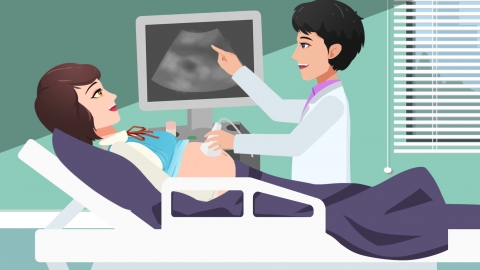What are the causes of the absence of a fetal pole?
Generally, the absence of a fetal pole may be caused by factors such as undergoing examination too early in pregnancy, inaccurate calculation of gestational age, poor embryonic development, biochemical pregnancy, or ectopic pregnancy. If discomfort occurs, it is recommended to seek timely medical consultation and treatment at a formal hospital. Detailed explanations are as follows:
1. Examination too early in pregnancy
When the pregnancy is at an early stage, the embryo may not have developed to the point where a fetal pole appears. In such cases, an ultrasound examination may show no fetal pole. It is advisable to wait 1–2 weeks and then undergo another ultrasound to monitor embryonic development. Remain calm and avoid excessive anxiety over a single examination result.
2. Inaccurate calculation of gestational age
Irregular menstrual cycles or incorrect recollection of the last menstrual period can lead to errors in calculating gestational age. The actual gestational age may not yet have reached the stage at which a fetal pole should appear. Gestational age can be recalculated by a doctor based on information such as ovulation date and sexual intercourse timing. Accurate records of relevant dates should be maintained during preconception and pregnancy to assist doctors in making assessments.

3. Poor embryonic development
Chromosomal abnormalities or other factors may lead to developmental issues in the embryo, preventing the normal formation of a fetal pole. If poor embryonic development is diagnosed, pregnancy should be terminated under a doctor's guidance. After physical recovery, chromosomal testing is recommended. Prior to the next pregnancy, both partners should undergo preconception checkups to reduce the risk of similar occurrences.
4. Biochemical pregnancy
In cases where the fertilized egg fails to successfully implant in the uterine lining, the embryo is naturally eliminated, which may result in the absence of a fetal pole. A single occurrence of biochemical pregnancy is generally not a major concern. Adequate rest and nutritional support are recommended to help the body recover gradually. If recurrent, luteal function should be evaluated, and progesterone soft capsules may be used under medical guidance if necessary.
When a fertilized egg implants outside the uterus, such as in the fallopian tube, it cannot develop normally into a fetal pole and may be accompanied by symptoms such as abdominal pain and vaginal bleeding. Immediate medical attention is required. Depending on the situation, treatment under medical guidance may include methotrexate injection or laparoscopic surgery to terminate the pregnancy and prevent serious complications.
In daily life, maintaining a healthy lifestyle during the preconception period and avoiding exposure to harmful substances are important. Regular prenatal checkups during pregnancy can help monitor embryonic development. If abnormalities occur, follow medical advice for appropriate management.








